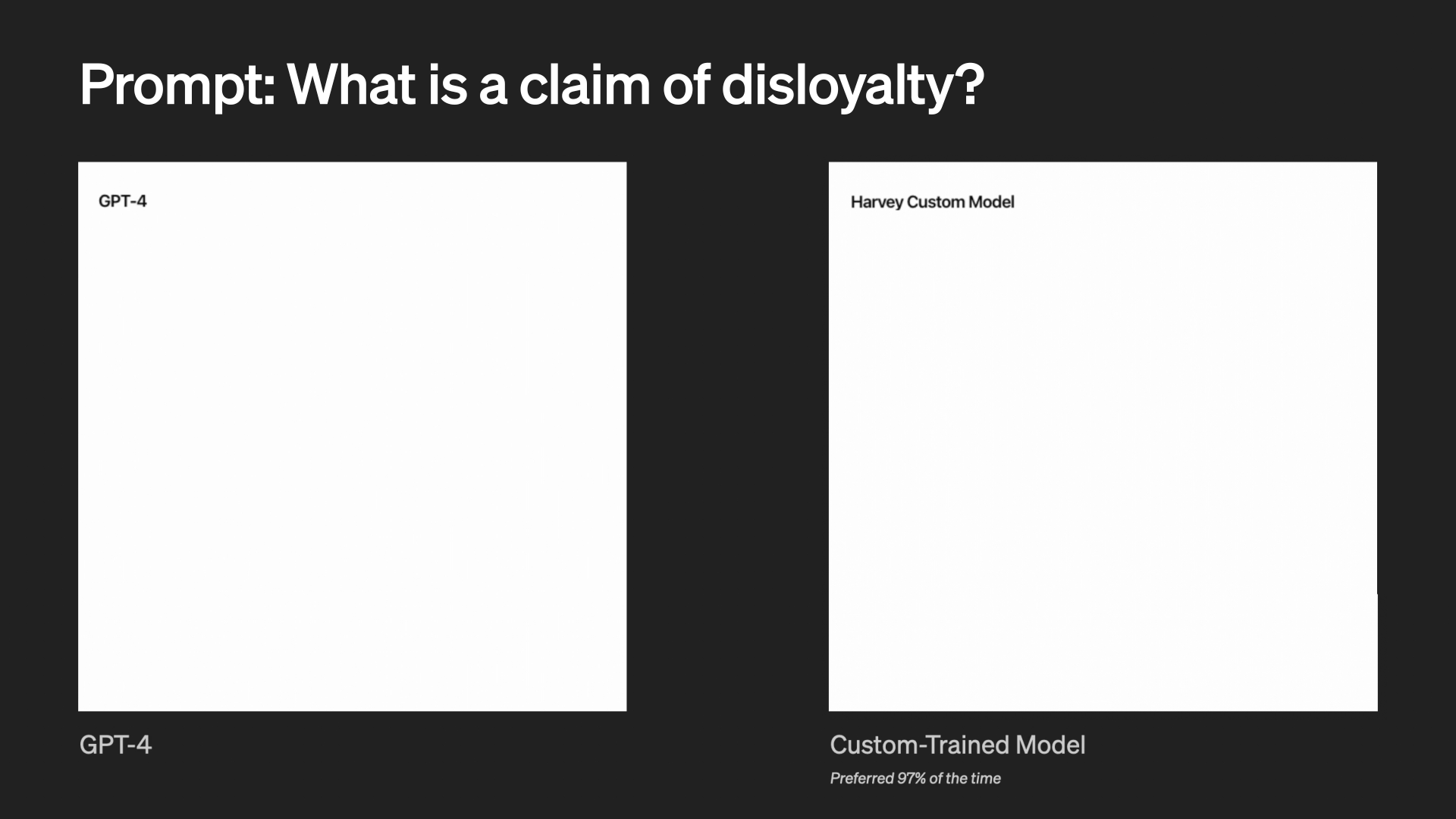OpenAI is expand a program, Custom Model, designed to assist enterprise customers develop customized generative AI models using its technology for specific use cases, domains and applications.
Launched last 12 months at OpenAI’s first developer conference, DevDay, Custom Model offers corporations the chance to collaborate with a bunch of dedicated OpenAI researchers to coach and optimize models for specific domains. “Dozens” of shoppers have since signed up for Custom Model. But OpenAI says that while working with this initial group of users, it recognized the necessity to expand this system to “further maximize performance.”
Therefore and
Assisted Tuning, a brand new component of the Custom Model program, leverages tuning techniques—similar to “additional hyperparameters and various parameter-efficient tuning methods at scale,” as OpenAI puts it—to enable organizations to establish data training pipelines, assessment systems, and others supporting infrastructure to enhance model performance on specific tasks.
Custom trained models are custom models built with OpenAI – using OpenAI’s base models and tools (e.g. GPT-4) – for patrons who “must further refine their models” or “latest , domain-specific specific knowledge,” says OpenAI.
OpenAI cites the instance of SK Telecom, the Korean telecom giant, which worked with OpenAI to fine-tune GPT-4 to enhance its performance in “telecom-related conversations” in Korean. Another customer, Harvey, which develops AI-powered legal tools with support from OpenAI Startup Fund, OpenAI’s AI-focused enterprise arm, partnered with OpenAI to construct a custom case law model that features tons of of tens of millions of words of legal text includes and feedback from licensed specialist lawyers.
“We consider that in the longer term, the overwhelming majority of organizations will develop bespoke models tailored to their industry, business or use case,” OpenAI writes in a blog post. “With a wide range of techniques available for constructing a custom model, corporations of all sizes can develop personalized models to drive more meaningful, specific impact from their AI implementations.”

Photo credit: OpenAI
According to reports, OpenAI is on a high approaches a staggering $2 billion in annual sales. But there is definitely internal pressure to maintain up, especially as the corporate plans a $100 billion data center to be co-developed with Microsoft (if needed). Reports are to be believed). The cost of coaching and deploying best-in-class generative AI models is not happening any time soon, and consulting services like custom model training might be just the thing to proceed growing revenue as OpenAI plans its next steps.
Fine-tuned and custom models could also reduce the burden on OpenAI’s model deployment infrastructure. Bespoke models are in lots of cases smaller and more powerful than their general-purpose counterparts and – as demand for generative AI peaks – undoubtedly represent a horny solution for a Historically, computing capability has been problematic OpenAI.
In addition to the expanded Custom Model program and custom model creation, OpenAI today introduced latest model tuning capabilities for developers working with GPT-3.5, including a brand new dashboard for comparing model quality and performance and support for integrations with third-party platforms (starting with the AI developer platform Weights & Biases) and enhancements to the tools. However, Mum is the word for the fine-tuning of GPT-4, which was introduced into Early Access during DevDay.
This article was originally published at techcrunch.com





